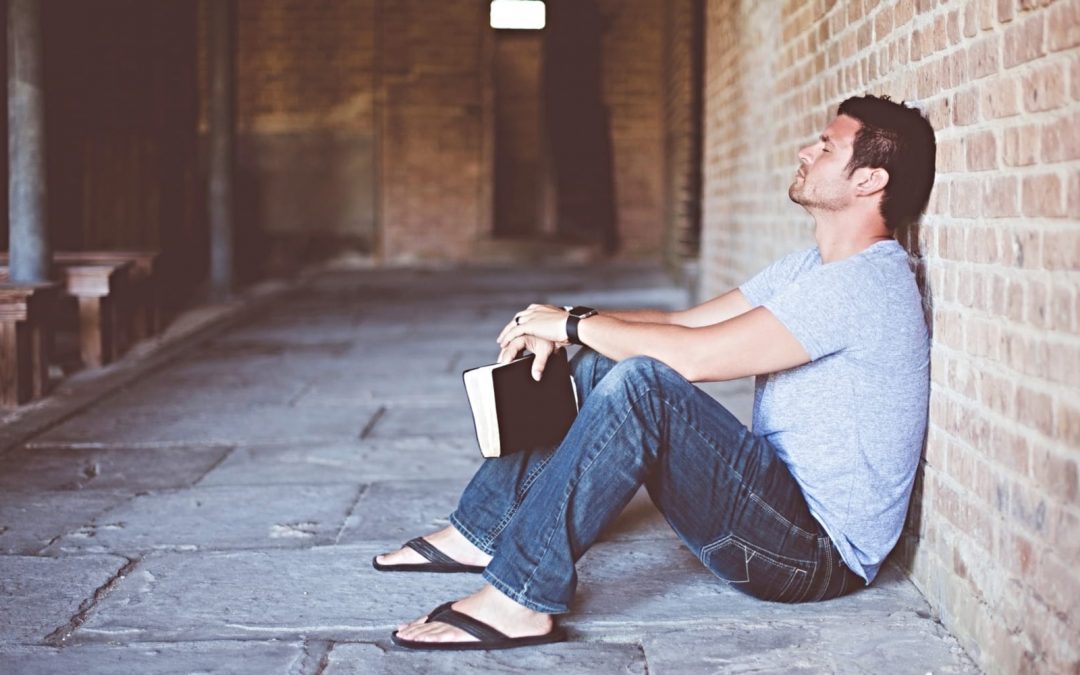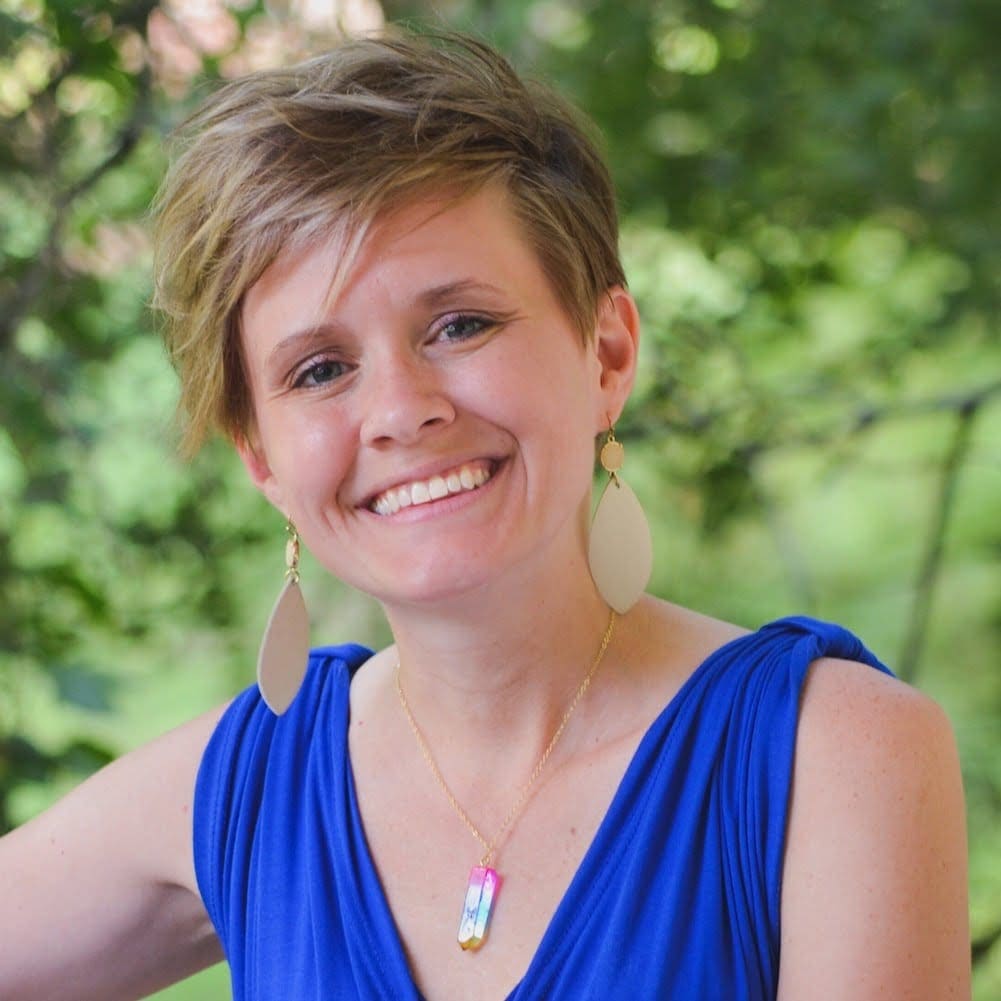“Are you related to Blake Rothaus?”
The question came unexpectedly from a stranger who approached my dad at a restaurant. I think the whole family was a bit taken aback since Blake had died 30 years ago in 1988.
“He was my brother,” my dad replied.
The stranger responded, “I took care of him before he died.”
My jaw nearly hit the floor. I had been quietly collecting research on my Uncle Blake for a few years because I was interested in his significant contributions to AIDS awareness in the state of Oklahoma as he was dying from the disease himself in his early 20s. My research had hit a wall, though.
Now, here I was, by complete chance, meeting someone who turned out to be one of his dearest friends.
Sherri had spoken at his funeral. She still has some of Blake’s ashes. Blake was not only a friend to her, but a hero. And I didn’t even know she existed.
Sherri and I struck up a friendship by email and by phone, and I began to learn far more about Blake than I had ever known before.
For example, in 1987, Blake lobbied at the Oklahoma Capitol, helping to pass a bill that would make Oklahoma (of all places) the first state in the country to mandate AIDS prevention education in public schools.
I learned about his advocacy, but I also learned about his personality, the way AIDS affected his brain (near the end he was convinced television shows were about his friends), his quirks, even his hairstyle – which, apparently, was not so different from my own.
Before long, I realized I was not just collecting research; I was at the beginning stages of writing a book.
Like Blake, I had grown up in Oklahoma too – I possess one photograph of Blake holding me as a baby.
Though it was a different era, the red state was still a homophobic place. They haven’t updated their AIDS curriculum since (guess when) 1987.
I remember being told at age 6 or 7 that I should stop holding hands with my girlfriends because people might think I was gay. I remember as a child seeing a gay couple, and someone saying within my earshot, “Gross.”
I remember knowing that my Uncle Blake had died of AIDS and that AIDS was a gay disease, but I did not know much else – not about Blake or about AIDS – though my mom had told me Blake was very nice.
Like many families growing up in the southern part of the country, I grew up Baptist.
The unexpected part of that narrative was that I grew up to be a Baptist pastor, which was not something girls did.
My own struggle to be accepted in a field that was not open or welcoming to me as a woman led me down a lifelong pathway of relating with and listening to people on the margins.
It wasn’t too long before I started listening to the stories of gay and lesbian and eventually transgender friends.
Even though I had been taught in church to dismiss the validity of their experiences, I knew from my own experience that God does not always work according to man’s expectations of God.
I say “man” because much of our Christian theology has been shaped, interpreted and delivered to us by men (straight, cisgender ones), save the important story of the resurrection, which, of course, was first delivered to us by women.
As I listened, it was unquestionably their stories and ultimately their humanity that led me to re-examine what I had been taught, and, eventually, to change my mind.
I consider it one of my life’s many conversions when I finally accepted and was set free to celebrate that the diversity of sexual orientation and gender expression was by design rather than a flaw in God’s plan.
This realization was accompanied by great joy, and finally, like God, I was at last able to delight in the bigness of God’s world and the beauty of a truly diverse creation. I was able to repent of my fear and walk in new, abundant light.
This journey wasn’t all joyful, however. I’m a Texas girl now, and as I have become more outspoken in my allyship, I have learned just how hostile the Baptist world can be.
On a regular basis, I meet with LGBTQ students who do not feel safe at Baylor University. Though they do not attend my congregation, they somehow find their way to my office. Having grown up religious, they are desperately in need of a pastor whose God offers love, not rejection.
My congregation has been voted out of both our local and state Baptist associations for being affirming, which had a direct impact on scholarships for students attending our church.
The more outspoken I became, the more my beloved Baylor seminary distanced itself from me.
As a student, I had won preaching awards and was a guest preacher in chapel more than once.
As a recent graduate, I was invited back as the honored “Pastor of the Day.” Now, I am prohibited from speaking at the seminary at all, simply because my theology affirms LGBTQ persons as fully loved and accepted by God.
I know the seminary’s ban on me would be even stronger (if that’s possible) if they knew the whole truth about me, which is that several years into my work as an ally, I experienced my first feelings of attraction to another woman.
I am not your “traditional” gay person in the sense that I can’t tell you whether or not I was born this way. I don’t really know.
I know I have loved men, and that I was even joined to one in matrimony for several years.
I know I have spent my life with very few “crushes” on men or women or anyone between. I just know that one day, nearing the age of 30, I was suddenly experiencing attraction to a woman for the first time.
I still don’t have a label for it. Maybe I’m gay-ish? Mostly gay? Not entirely straight? The jury is still out.
Maybe that “deviant” streak of sexuality was in me unacknowledged longer than I realized.
Maybe it explains my fascination with my Uncle Blake, whom I was too young to get to know before he died.
What I do know is that thanks to the courageous Baptists who came before me leading the way in proclaiming God’s abundant love in Christ, I don’t have to wrestle with whether I am accepted by God.
I don’t have to contemplate suicide as a way to escape the “curse” of being less than perfectly straight.
I may be rejected and maligned by some, but I know exactly where to find unconditional acceptance by many. I am not lost or alone.
I am solidly grounded in my identity as God’s beloved and as someone God has called, gifted and anointed. I do not have to wrestle with doubt or with shame. I am loved.
I want this sense of assurance for every Baptist, every Baylor student, every single person in the world, because, as we say every Sunday at Lake Shore Baptist Church in Waco, Texas, “God’s love holds no bounds.”
The truth is that I do not know whether Baylor University will do the right thing any time soon and answer the simple request to permit gay student organizations fair treatment on campus.
But what I do know is that Baptists everywhere already know, understand, practice and preach God’s abundant love.
We are just waiting for the institutions to catch up with what we already know to be true in our souls and in our bones, in our experience with God and with neighbor.
While we continue to wait and pray and work for institutional change, if you are an LGBTQ student or alumni or church person who has experienced discrimination, allow me to say this to you on God’s behalf: You are so loved just the way you are.
The church has failed you, and so has Baylor. Your pain is real, and we are sorry.
Policies are making you feel unseen, but please know, thousands of individuals see you, honor you and stand with you, not just now, but always.
Change is hard and the work is tiring, so over the years I have developed a philosophy about change that goes like this: Institutional recognition is nice (and deserved) but not once will I put my life on hold waiting for it.
That is how the powers will win – if they can keep us dependent on their approval. My friends, we are powerful beyond measure, and even more so when we stick together.
I will continue to push for Baylor and for other Baptist institutions to choose the side of justice, but to be honest, I’m not holding my breath, because I have a life to live and work to do and truth to tell, and I need my lungs to do it.
I’m still on a quest to locate Tim, Blake’s partner at the time of his death, who rumor has it is still alive.
I’ve got suicidal students to meet with and gently persuade that God loves them even though their churches do not.
I’ve got foster babies to care for and sermons to preach and books to write and congregants to love and dates to go on, and I just don’t have time for the haters.
I give my time and energy to change itself, but not to the people who want to stop me. I wasn’t put on this earth to waste my time, and, I suspect, neither were you.
A spiritual guide, preacher, poet, author, ordained minister and feminist theologian. She is co-host of the Discovering Wholeness podcast, co-founder of Nevertheless She Preached, and author of Thy Queendom Come: Breaking Free from the Patriarchy to Save Your Soul and Preacher Breath.


